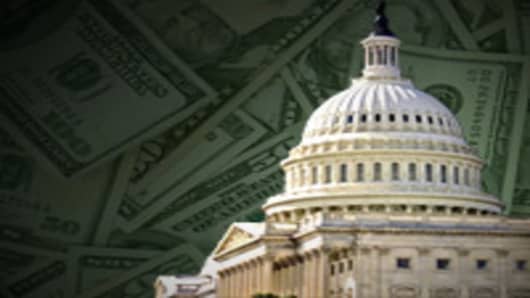A U.S. default on its obligations creates "a different world, and I don’t think you want to be in that world," economist Robert Brusca told CNBC Thursday.
"You’re talking about rearranging the fundamental purpose of government here and I don’t think you want to do it with a gun to your head with a two-week time horizon. That doesn’t make any sense to me," said the chief economist of Fact and Opinion Economics.
If the U.S. Congress can't agree on raising the debt ceiling, the government could be in default on its bonds in August. Republicans first want to approve a budget cutting trillions of dollars in spending in all areas but the military.
"These are fundamental ideas about what obligations you’re going to have to your people, what kind of tax policy you’re going to have, what kind of Social Security, what kind of Medicare, Medicaid," Brusca about the dispute. "Why do you want to have to make all of these decisions before this very compressed deadline?"
Brusca said allowing the U.S. to default even for a few days if it brings agreement in Congress, as some traders have argued, would create uncertainty for bondholders around the world.
"You miss payments, you’re in default. If you can’t pay me because you don’t have money I don’t get paid," he said. "Once you’re not paid, you’re not paid and you don’t know when you’re going to be paid."
Patricia Chadwick, president, Ravengate Partners, said in the same interview she doesn't believe there will be a default.
"If they get into a crisis I don’t think they’re going to let themselves get into the position where they’re defaulting in any way, shape or form," she said.
However, she said, "somehow in my bones I believe when it gets to August it’s going to be, 'oh by November we’ll have it done.' Maybe I’m wrong, I hope I’m wrong because I agree they have to make some serious cuts."


